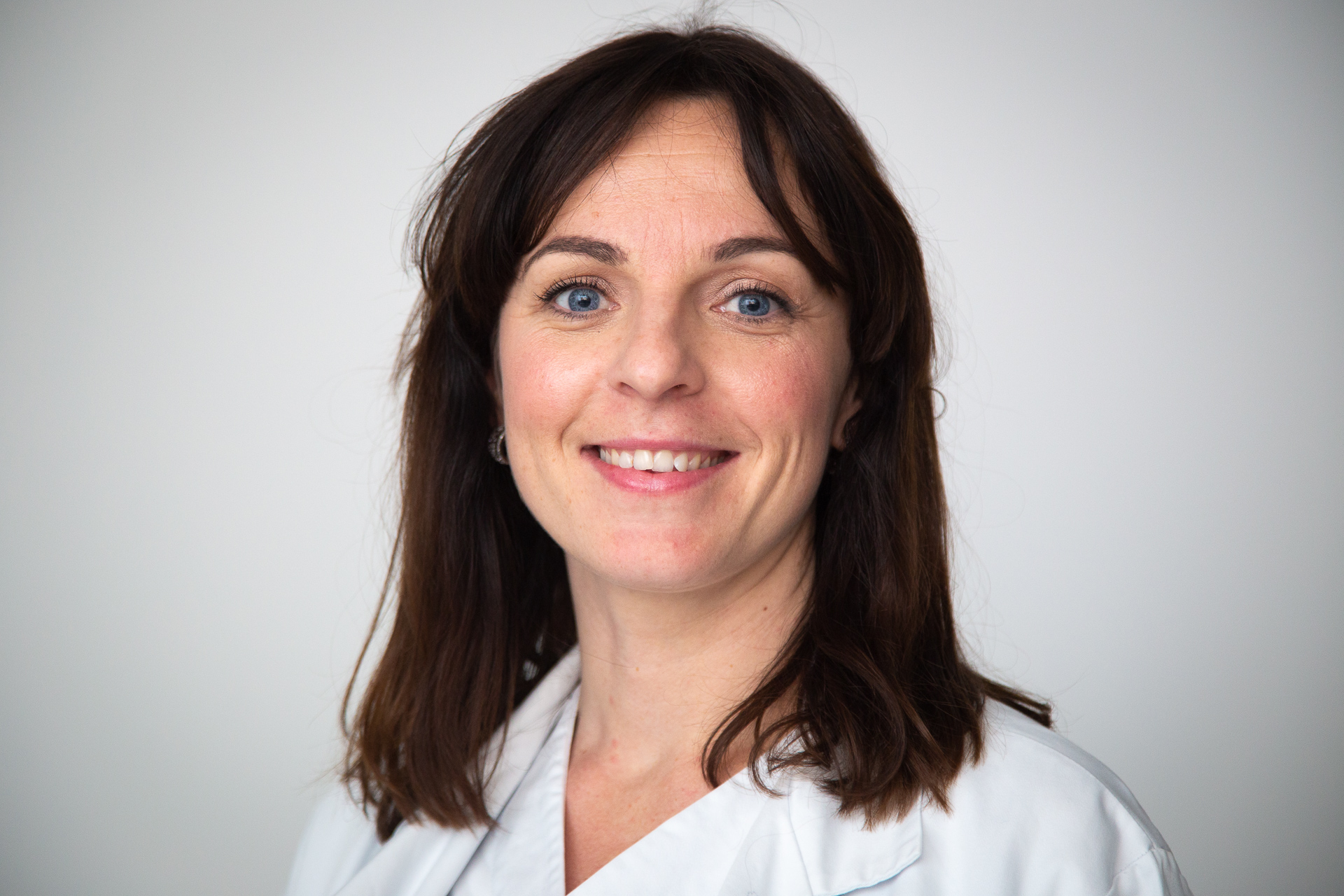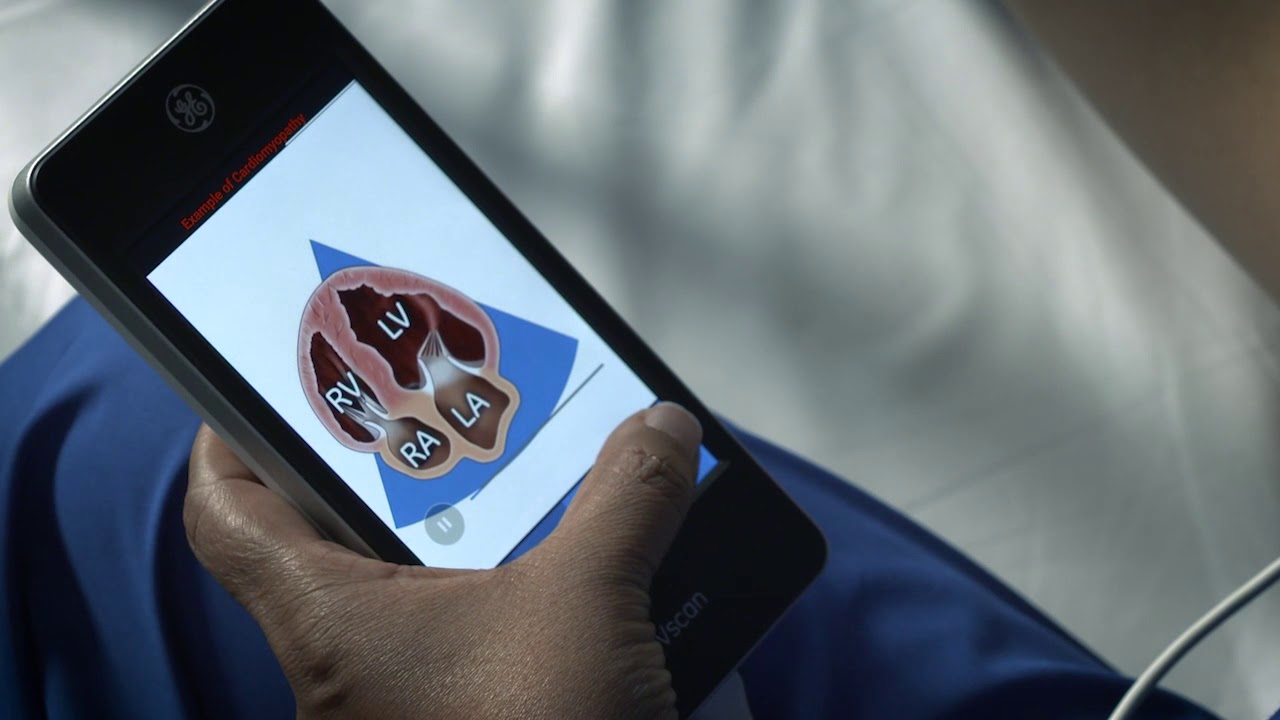Av Malgorzata Isabela Magelssen, PhD Candidate at CIUS, NTNU
Cardiac diseases are a major health concern and many of the patients in a general practitioner’s (GPs) office have heart conditions. Hand-held ultrasound device (HUD) can improve the GP’s diagnostic possibilities. We want to evaluate if a training program with focus on practical ultrasound skills can help the GP’s to correctly diagnose certain heart conditions by using HUD. If successful, unnecessary referrals could be avoided and patients in need of specialist care would avoid delay in diagnosis and treatment.
Diagnostic ultrasound represents a potential tool to improve the accuracy of the diagnostics. Diagnosis in often inaccurate when based on medical history and clinical examination alone. Studies have shown that fellows in internal medicine and family practice have a poor identification rate for important and commonly encountered cardiac events. On the other hand, several clinical conditions are difficult to recognize with physical examination alone, but easy to recognize by ultrasound; examples are pericardial effusion, heart failure and even early LV dysfunction. Traditionally GPs refer patients to a specialist for cardiac ultrasound. Many of the referred patients are not in need of specialized care and could potentially be diagnosed and treated out of hospital. Due to long waiting lists, the time to diagnosis can be prolonged and further lead to delayed treatment. Quick and accurate diagnoses is essential in order to preserve the health and quality of life of the patients.
 HUDs have in many hospitals become a routine part of the initial evaluation of patients with suspected heart disease. The low cost and easy accessibility have also made them available outside the more conventional settings. Previous studies have shown that when used by experts, residents or dedicated nurses, HUDs can improve the diagnostic accuracy. The accuracy is lower when used by non-experts, and thus, proper education and training is important.
HUDs have in many hospitals become a routine part of the initial evaluation of patients with suspected heart disease. The low cost and easy accessibility have also made them available outside the more conventional settings. Previous studies have shown that when used by experts, residents or dedicated nurses, HUDs can improve the diagnostic accuracy. The accuracy is lower when used by non-experts, and thus, proper education and training is important.
Our research group at CIUS (Centre for Innovative Ultrasound Solutions), NTNU (Norwegian University of Science and Technology) is currently conducting a study where GPs utilize HUDs for evaluation of patients with suspected heart failure. The study is conducted in the outpatient clinic at Nord-Trøndelag Health Trust, Levanger Hospital. Before we started the inclusion of patients, 5 randomly selected GPs underwent both theoretical and practical training. One of our main question is what amount and which type of training is adequate for GPs to accurately evaluate patients with potential heart disease?
![]() In our study, each GP was individually trained with focus on practical skills. First, they all received a theoretical review of the basics of cardiac ultrasound including the most common pitfalls. We focused at the most important projections in cardiac ultrasound; parasternal long-axis and apical 4-chamber. Automatic applications to measure cardiac function were demonstrated. Further, they all received 5-6 individual days of “hands-on” training at Levanger Hospital. They spent the days examining patients and there was always a “teacher” present to aid in the examinations. At the end of the day, we went through the images and discussed future improvements. We also encouraged det GPs to use the HUDs at their own clinical practice as part of the training.
In our study, each GP was individually trained with focus on practical skills. First, they all received a theoretical review of the basics of cardiac ultrasound including the most common pitfalls. We focused at the most important projections in cardiac ultrasound; parasternal long-axis and apical 4-chamber. Automatic applications to measure cardiac function were demonstrated. Further, they all received 5-6 individual days of “hands-on” training at Levanger Hospital. They spent the days examining patients and there was always a “teacher” present to aid in the examinations. At the end of the day, we went through the images and discussed future improvements. We also encouraged det GPs to use the HUDs at their own clinical practice as part of the training.
After the training period, we started the inclusion of patients in the study (150 in total). The patients were examined by a GP, a dedicated nurse and a Cardiologist. The purpose of the study is to evaluate if GPs can accurately diagnose heart failure when HUD is added as a supplement to the clinical examination. A focused cardiac ultrasound with the support of telemedicine and automatic measurements of heart function will hopefully help the GPs in this evaluation. A cardiac ultrasound performed by a specialist in cardiology works as a reference.
We hope to show that our approach for training GPs improves the accuracy of their everyday diagnostics to the best for the patients, and we hypothesize that by the dedicated training and the use of supportive tools the goal is achievable!

